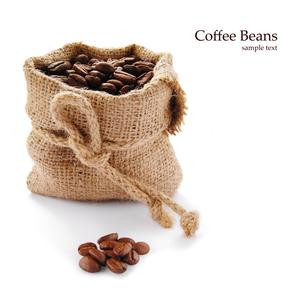Study says drinking coffee is effective in preventing type 2 diabetes.

Drinking more coffee may reduce the risk of type 2 diabetes, a large new US study suggests. The study of more than 123000 adults found that people who increased their daily intake of java (Java-made coffee) by more than one cup reduced their risk of diabetes four years later, while adults who did not drink coffee could see an increase in their risk of developing diabetes during that time.
Dr Frank Hu, lead researcher of nutrition and epidemiology at the Harvard School of Public Health, said: "it seems that there is a dose-response relationship between coffee intake and increased risk of diabetes. Basically, the more coffee you eat, the lower the risk of diabetes. People who drink three to five cups of coffee a day significantly reduce the risk of type 2 diabetes. "
Frank reminds people that caffeine is a stimulant that wakes some people up and causes the heart to beat faster. It is difficult to determine which ingredients in coffee may lead to a reduced risk of type 2 diabetes. The current study found that some kind of coffee, which combines antioxidants and other nutrients, is responsible for reducing the risk of diabetes. "
The study, published online on April 24 in Diabetes, showed a link between more coffee and a lower risk of diabetes, but could not actually identify the causal relationship between one leading to the other. However, a causal relationship between coffee and reduced insulin resistance has been found in both animal and human trials, Frank said. "Insulin resistance is a warning sign of diabetes," he said.
In the study, Frank's team collected data from three major studies in the United States: the Nurse Health study from 1986-2006 and 1991-2007, and the follow-up study of health professionals from 1986 to 2006.
Study participants completed questionnaires every four years, including their coffee and tea intake. Overall, 7269 cases of type 2 diabetes were reported. The researchers calculated that people who increased coffee consumption and drank one cup a day over four years had an 11% lower risk of developing type 2 diabetes over the next four years than those who did not increase their daily coffee intake. However, those who drank less than one cup of coffee a day or less increased their risk of developing diabetes by 17 percent over the next four years, the researchers said.
Frank's team defines a cup of coffee as 8 ounces of coffee, black or with a small amount of milk or sugar. "drinking coffee with sugar or milk may have some benefits in reducing the risk of diabetes," Frank said.
"the results apply to coffee with caffeine," the researchers said. Decaffeinated coffee and caffeinated tea cannot be associated with a change in the risk of type 2 diabetes. "
Frank says coffee can be part of a healthy diet, but it should not be used as a way to prevent type 2 diabetes, so other experts such as Frank are not prepared to advise patients on the amount of coffee they eat. He added: "people should still pay attention to their weight and physical activity."
Important Notice :
前街咖啡 FrontStreet Coffee has moved to new addredd:
FrontStreet Coffee Address: 315,Donghua East Road,GuangZhou
Tel:020 38364473
- Prev

Breasts reveal personality traits! Women with small breasts prefer coffee.
A number of studies have shown that breast size can show a variety of personality traits and lifestyles of women, according to a recent article in the Medical Daily. 1. The breasts are larger than An and B cups, and the consumption level is high. A survey by Alibaba, a Chinese e-commerce website, found that women with smaller (B or smaller) cup sizes spend less money than their peers with larger cup sizes. Size B cup size
- Next

Having a cup of coffee before taking a nap can relieve fatigue and health care.
Expert Ming said that the substances that cause fatigue in the body are mainly lactic acid, uric acid, urea and so on. If they are not cleared in time, they will cause drowsiness. And coffee can be diuretic and dehumidifying, so that people timely discharge harmful substances, so that the tired body to relax. Experts point out that taking a nap at noon is very good for the body, while drinking a small cup of warm coffee before drinking is better. Even if I can't sleep.
Related
- Beginners will see the "Coffee pull flower" guide!
- What is the difference between ice blog purified milk and ordinary milk coffee?
- Why is the Philippines the largest producer of crops in Liberia?
- For coffee extraction, should the fine powder be retained?
- How does extracted espresso fill pressed powder? How much strength does it take to press the powder?
- How to make jasmine cold extract coffee? Is the jasmine + latte good?
- Will this little toy really make the coffee taste better? How does Lily Drip affect coffee extraction?
- Will the action of slapping the filter cup also affect coffee extraction?
- What's the difference between powder-to-water ratio and powder-to-liquid ratio?
- What is the Ethiopian local species? What does it have to do with Heirloom native species?

